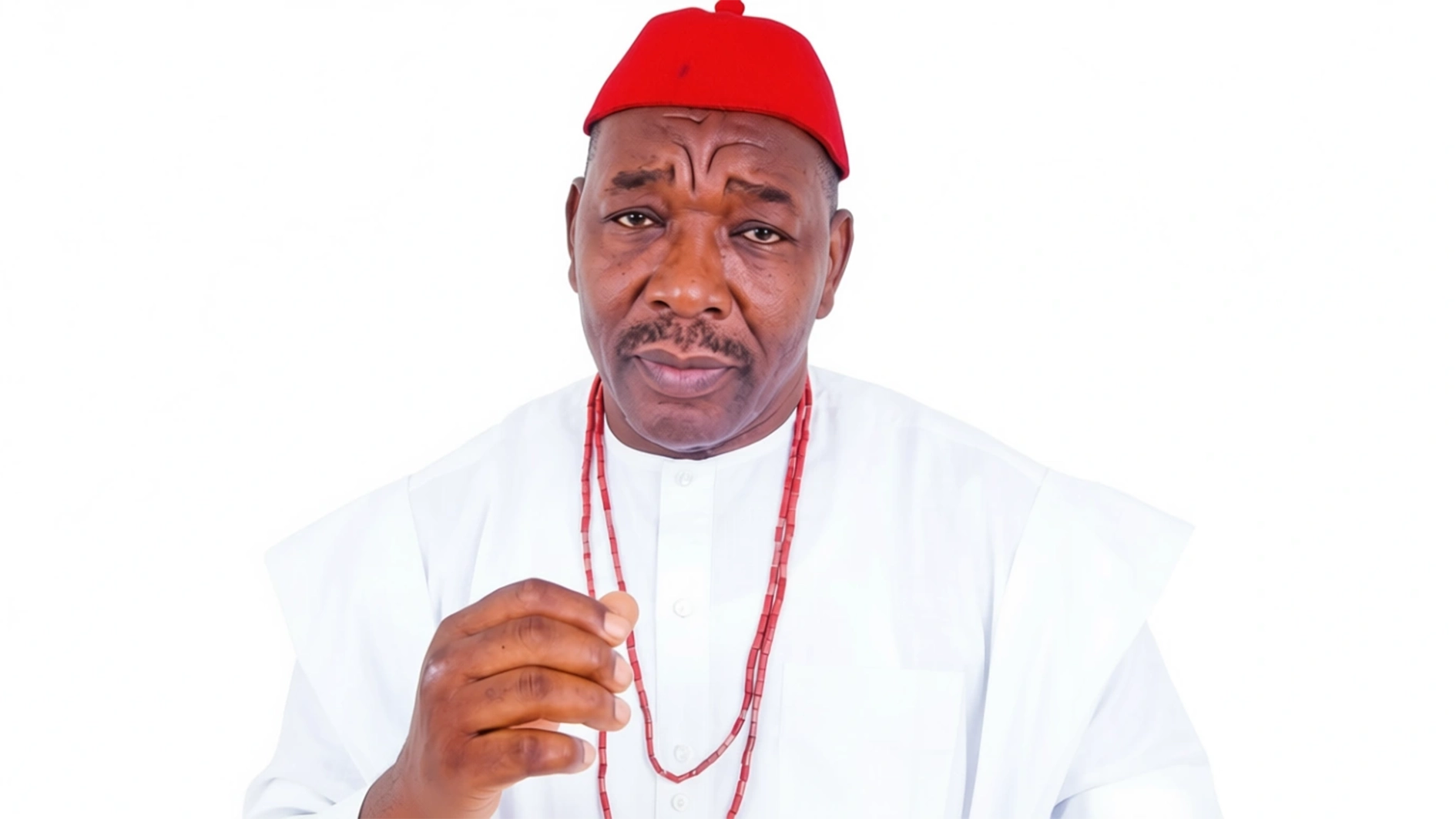• Says Authority’s Agric Sector Intervention Has Conserved $100m Forex For Nigeria
Vice President Yemi Osinbajo yesterday commissioned the Pandagric Novum state-of-the-art farm located in Nasarawa State.
The farm, located in the Karu Local Government Area of Nasarawa State, is backed by the Nigeria Sovereign Investment Authority in partnership with Signature Agri Investments.
The event was attended by the Governor of Nasarawa State, Mr. Abdullahi Sule; the Minister of Finance, Budget and National Planning, Mrs. Zainab Ahmed; the Minister of Environment; the Chairman of the NSIA Board, Farouk Gumel; the Managing Director of the NSIA, Uche Orji; the Managing Director of Panda Agric, Bruce Spain, the Managing Director of Signature Agric Investments, Theo Van Der Veen, among other top officials in the private and the public sectors of the economy.
Speaking at the event, Osinbajo hailed the commitment of the NSIA to serve as a catalyst to galvanise the much-needed investments in the agriculture sector and its value chain.
Specifically, he praised the doggedness of the leadership of the NSIA for ensuring that the project is completed within a period of four years despite the challenges caused by the COVID-19 pandemic, which led to the shutdown of the economy in 2020.
Osinbajo said the decision of the NSIA to partner with the private sector in investing in agriculture is in line with the food security agenda of the Federal Government.
He told the gathering that President Muhammadu Buhari has huge confidence in the ability of the NSIA to deliver on its mandate, adding that this was what informed the decision of the President to allow the Authority to take charge of the Presidential Fertiliser Initiative.
Since the implementation of the Fertiliser Initiative, the Vice President explained that Nigeria now has over 60 fertilizer blending plants, creating huge number of jobs for the economy.
Through the initiative, he said that about $100 million in foreign exchange has been conserved for Nigeria.
He said: “When you look at the investments, you feel comfortable working with the state and like you said, despite some of the initial apprehension, you were able to summon the courage and the ambition to enable this sort of project here.
“President Muhammadu Buhari as you know passionately believes in the role of agriculture as a key driver of job creation and economic growth in Nigeria.
“In the fulfilment of one of his key mandates, the NSIA has, over the last 10 years, invested in different sub-sectors of the agriculture value chain.
“In 2016, the President set up the Presidential Fertilizer Initiative to address the problem of cost and availability of fertilizers. NSIA was enlisted by the President as the project implementing entity and over its five-year run from 2017- 2021, the programme delivered 30 million 50 per kg bags of NPK fertilizer to Nigerian farmers.
“It resuscitated the fertilizer blending industry and a lot of fertilizer blending factories, over 60 of them. It created hundreds of thousands of jobs, direct and indirect, and it enabled us to conserve almost $100 million in foreign exchange.”
He described the Pandagric farm project as the largest maize farm in Nigeria and commended the Governor of Nasarawa State for providing the land for the initiative.
The VP said the partnership between the NSIA and the private sector is a demonstration that there is huge untapped potential to invest in various sectors of the Nigerian economy.
In his remarks delivered at the event, the NSIA Board Chairman explained that the agric intervention is in line with the Authority ‘s mandate to promote inclusion and foster partnership between the private and public sectors.
He described the support of all the stakeholders to the project as “fantastic,” adding that their support was also instrumental in the timely delivery of the agric project within a record time of four years.
He commended the leadership qualities of Orji at NSIA and said the day of the commissioning of the Panda Agric project is memorable as it would be the last working day of Orji as NSIA MD.
Orji was the pioneer MD/CEO from the inception of the NSIA in 2012 and was reappointed in 2017 for a second and final five-year term.
Under his leadership, the NSIA has become a highly regarded institution, serving as a vehicle for implementing key infrastructure projects and investing in Nigeria’s savings.
To drive the agric intervention vision further, Gumel said the NSIA Board recently approved the establishment and seeding of a new naira-denominated agriculture fund.
He said the fund would serve as a conduit for pooling significant sums of local currency capital for the development of projects designed for export produce and foreign currency revenue generation.
He explained further that the formal operationalisation of this facility is the beginning of the Authority’s push to actively participate in the sector as an operator and institutional investor.
He said: “Agriculture remains one of the largest economic sectors in Nigeria contributing an average of 24 per cent to the nation’s GDP over the past seven years.
“In four years, 2017–2020, Nigeria’s cumulative agricultural imports stood at N3.35 trillion, four times higher than the agricultural export of N803 billion within the same period. This confirmed that there is significant domestic demand, which the discerning investor can harness.
“Armed with all the foregoing data, the Board held the view that if we change the structure in agriculture and create systems that enable the sector to thrive, then NSIA can play its part in making the sector truly catalytic and able to channel Nigeria’s productive capability in this non-oil sector.
“Reviewing this data, we came to the conclusion that agriculture is a double-edged sword. If enhanced, it can become an economic driver. However, where the sector is neglected, it could become a threat to food security and leave the economy open to exploitation.
“To expand agriculture beyond subsistent practice and to ensure that the sector is scalable, successive Boards of the NSIA have made investments in the sector such as the Fund for Agriculture Finance in Nigeria in 2014 and Babban Gona in 2018, while also managing the Presidential Fertilizer Initiative established by Mr President from 2016. We intend to continue investing in the sector.”
Gumel added that the facility represents the next phase in the NSIA’s investment approach where it will begin to co-invest directly in scalable domestic agriculture projects.
“Our investment in Panda was to drive infrastructure expansion as well as the implementation of technology and regenerative farming techniques. Today, we see our investment come to fruition as we commission this state-of-the-art facility.
“We are confident that with the quality of management in place and the continued investment for expansion, this facility will only serve as a proof of concept for further investments in Agriculture,” he added.
Also speaking, the NSIA boss said that the Authority has since 2016 been investing in the agric sector through the provision of a $200 million fund set aside for that purpose.
He said the agriculture sector is one of the key focus sectors for the NSIA and an important area for the Nigerian economy, with high potential for employment generation, poverty alleviation and food security.
According to him, the Authority seeks to leverage the potential of Nigeria‘s agriculture sector to develop it in a manner that would ensure increased production.
This, he stated, would assist in boosting the satisfaction of local demand, as well as the development of requisite infrastructure to ensure improved product quality, facilitate import substitution and generate foreign exchange earnings from the exportation of agric produce
Orji said the farm is currently cultivating 1,200 hectares, adding that by next year, the objective is to increase that to 2,400.
He commended the Governor of Nasarawa State for providing the enabling environment for the investment to thrive and the people for their support and cooperation.
Orji said the farm is currently supporting about 500 smallholder farmers and has created jobs for the people of the state.
“The dedication shown by our partners is something really amazing. They focused here and had a plan with us and immediately started to execute which has culminated in today’s commissioning of over 1,200 hectares of land and by next year, we will get 2400.
“Your excellency, thank you for the commitment to issue us land. The support we have received from your state, from you in particular, is second to none, and the community, because each time I come, they say no issues with communities.
“The herdsmen community here are very cooperative with us, and there has not been any single issue that we have had operating here. The relationship with the community balances with management and we always sit to resolve issues. That is welcoming for us as investors.
“We are going to eventually get to 16,000 hectares of this area, enable a lot of smallholder farmers with the proceeds. Obviously, a lot of investment has gone into equipment and we will try to aggressively impact the community.
“There is a lot we will do apart from this smallholder farmer and that will continue to expand and you will see also how we will clean and regenerate the community,” Orji said.
According to him, under the plan for the project, there will be the planting of 100,000 trees a year.
He, however, urged the government to address some of the challenges faced by investors in the country.
Specifically, he listed the movements of trucks from Lagos to Nasarawa, the issue of poor telecommunication network, power supply issues and roads as some of the immediate challenges facing the project.
He stated further that the NSIA will continue to work with the government and other stakeholders to further unlock the potential of other critical sectors of the economy.
In his speech at the event, the Governor of Nasarawa State, Abdullahi Sule, applauded the partnership between NSIA, Pandagric and Signature Agri Investments, noting that the partnership would transform the economy of both the state and Nigeria.
He said as a state, his administration has taken deliberate steps in stimulating the agric sector due to its job creation potential.
The governor said his administration has instituted various initiatives aimed at making the state more attractive for businesses to thrive.
The finance minister, in her comments, expressed satisfaction about the NSIA’s commitment of more resources to the agriculture sector both in terms of direct investment and co-investments.
“The Panda feed mill and its accompanying storage facility and mechanised farming system underscore that need for significant private sector investments in the country.
“With the modest co-investment of $50 million contributed in equal part by NSIA and its partner Signature Agric Investment, the output from the farm has increased by over 60 per cent in the last two years.
“I congratulate the management of the NSIA and their partners Signature Agric Investments. Agriculture has a massive social and economic footprint. So, I expect that we will see more investments from the NSIA in this sector on a much larger scale,” she said.
In his welcome address, the Managing Director of Pandagric, Mr Bruce Spain, said the provision of an enabling environment for investors was responsible for the success of the partnership.
He added that with the partnership between the company and NSIA, the business of agriculture is being revolutionised.
Spain said the business is focused on ensuring the nation’s poultry farmers have the highest quality feeds.
Some of the key milestones achieved under this project are the installation of a 147,000 metric tons per annum capacity poultry feed mill; the installation of 75,000 tons of storage infrastructure in the form of two silos, six bunkers, as well as 35,000 tons of raw material and finished goods storage; the installation of 750ha of centre pivot irrigation systems; the leasing of 3,500ha of land for the cultivation of maize and soybeans.
There is also the construction of a 1.4 million cubic metre reservoir for water management; and the successful planting of 856ha of maize in the 2021 wet farming season and 1,200ha of maize during the 2022 wet farming season.
In addition, Pandagric also built boreholes for all six of its neighbouring communities, developed an out-grower scheme, providing inputs and training to over 500 small holder farmers; employs almost 600 direct staff and 2,000 indirect staff, making it the largest contributor of PAYE to the Nasarawa State government.






